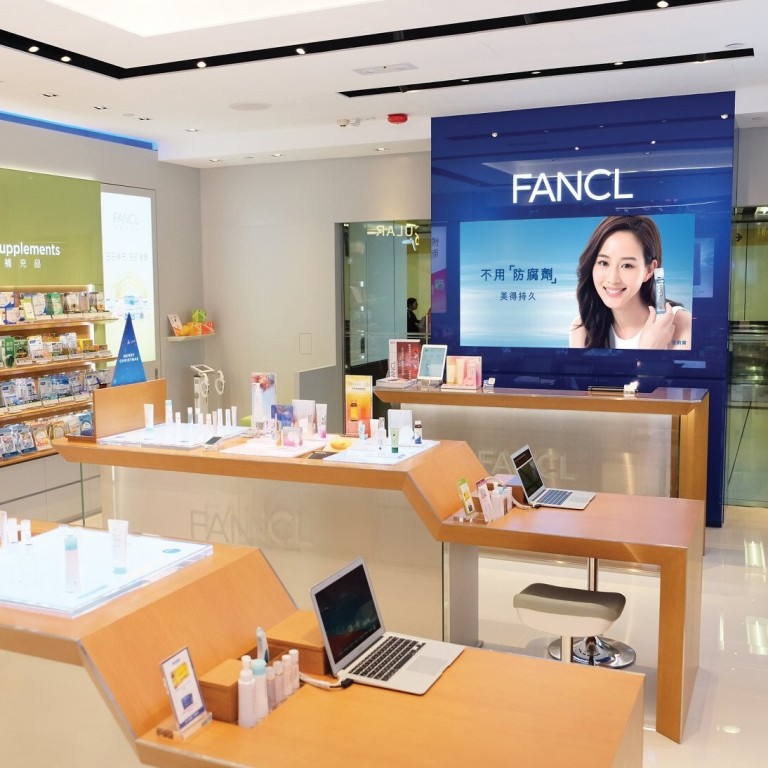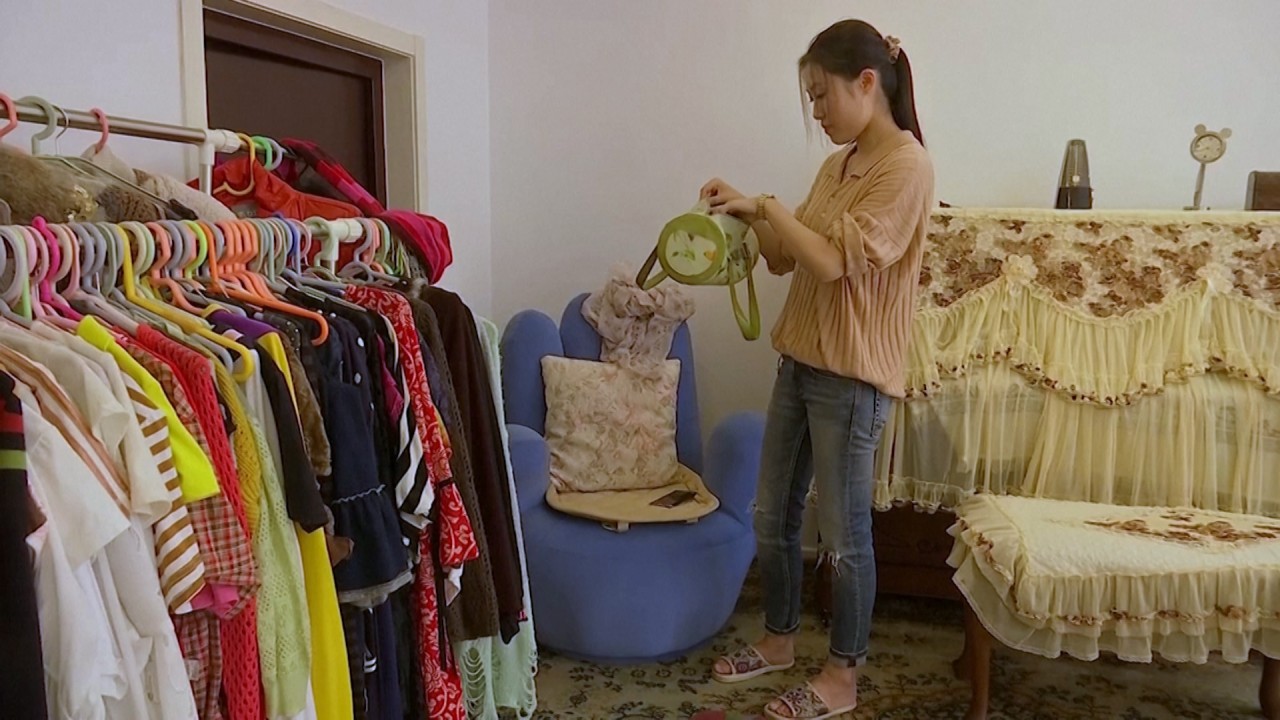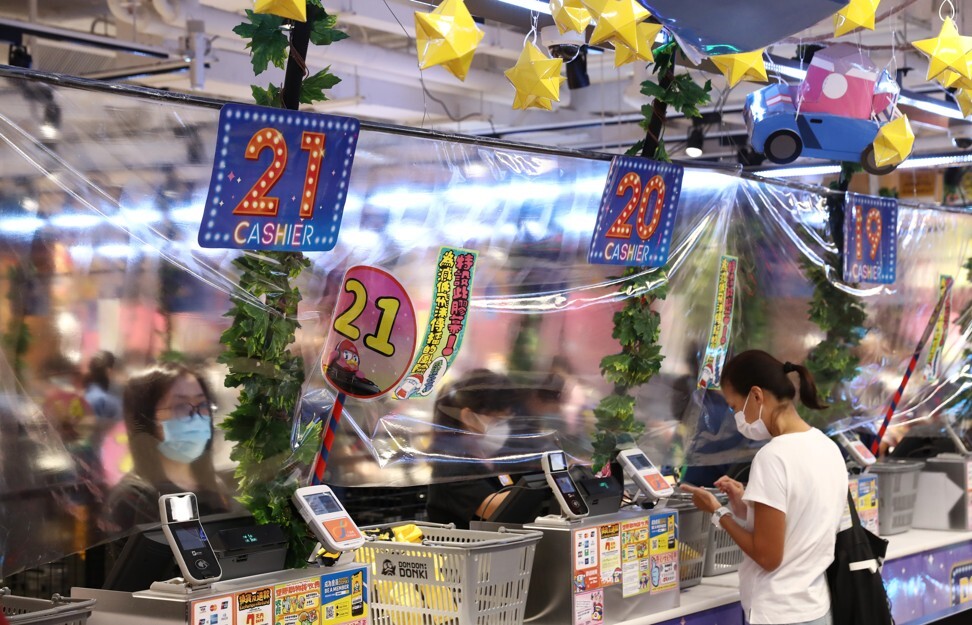
Blackstone, Carlyle, Bain among suitors fine-tuning bids for Asian distributor of Fancl’s beauty products ahead of Friday deadline
- Blackstone, Carlyle, Bain Capital, Sequoia Capital, and Citic Capital are the last suitors standing in the auction after a dozen were whittled down to five
- Deal may peg the company’s value between US$600 million and US$900 million
In crowded Hong Kong malls, shoppers can walk into local retailers and buy Fancl’s skincare and cosmetics products at knock-down prices, dramatically undercutting sales at branded Fancl stores throughout the city.
Sensing opportunity, private equity firms Blackstone, Carlyle, Bain Capital, Sequoia Capital, and Citic Capital are fine-tuning their bids for the distributor ahead of a deadline on Friday, people familiar with the matter said.
Their offers could peg the company’s value at somewhere between US$600 million and US$900 million.

04:10
Hong Kong retailers should create experiences for local shoppers to survive with ‘zero tourists’
A deal is likely to bring to an end a long-running dispute between Tokyo-listed Fancl Corp and CMC over the growing tide of cheap imports from Japan. The winner of the auction will probably need to broker an agreement with Yokohama-headquartered Fancl Corp to present a united front to wholesalers who are selling at a discount in Asia.
It will also need to negotiate distribution contracts expiring for Hong Kong and China in 2026 and the rest of Asia at the end of 2029.
The next owner of CMC could also hammer out a new growth strategy for the region after years of underinvestment stemming from disagreements between the partners over the imports and strategy. Fancl’s sales into mainland China could skyrocket with a refreshed e-commerce strategy, the people familiar said.
The auction kicked off last year and attracted over a dozen bids. CMC and its financial adviser Morgan Stanley have since narrowed the field of suitors down to five.
After Friday, only one or two will move forward to make binding bids and conduct due diligence. The final step would see one of these suitors signing a purchase agreement, probably before the end of February, the people said.

03:02
China sees boom in transactions for used goods as coronavirus hits retail sector
Founded by Christopher Chan and his wife Michelle in 1996 with around HK$7.5 million (US$970,000 at Tuesday’s exchange rate), CMC Holdings now has over 250 points of sale in Asia outside Japan, spanning mainland China, Hong Kong, Macau, Singapore and Taiwan.
The Chans discovered the Fancl brand, known for its preservative-free products, during a trip to Japan in the 1990s.
For years, CMC has been able to charge a premium for Fancl products in Asia, and the rare home-grown start-up generated close to US$30 million in net income last year off revenues of about US$250 million. In more normal years, the company has recorded Ebitda of around US$60 million to US$70 million and net income of US$40 million to US$50 million.
The Chans’ strategy was to build a loyal following who would pay a premium for the products, partly by employing skincare consultants who help customers establish a long-term skincare regime. The result is that around 75 per cent of its customer base is made up of repeat buyers.

However, CMC’s ability to command a premium has gradually eroded because of the wave of so-called parallel imports from Japan. Industry sources estimate that about 2.5 times the volume of official sales via CMC are being sold via unofficial channels in Asia.
A cross-shareholding between Tokyo-listed Fancl Corp and CMC Holding was ultimately unwound in around 2016.
Founded by Kenji Ikemori in 1980, Fancl Corp’s wholesale revenues have grown from 14.6 billion yen (US$140 million) in the financial year to March 2016 to 23.6 billion yen in the year to March 2020.
The winner of the auction could expand Fancl’s presence across the region. For instance, Carlyle and Citic Capital have successfully rolled out fast-food chain McDonald’s across China. Bain Capital has expanded South Korean beauty brands Carver and Hugel in China. Carlyle and Bain also have a long-standing presence in Japan.
A final structure for the deal has yet to be decided. Chan could remain as a minority shareholder or sell out entirely.
Credit Suisse is advising Blackstone while Nomura is advising Carlyle.

